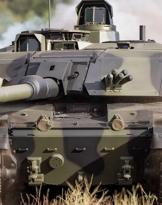1,3 billion euros. This is the cost of the new Brussels office, not yet opened, of the North Atlantic Treaty Organization (NATO). Certainly not an expense in line with the constraints of the period, at a time marked by continuous cuts to the Defense in the 28 member countries of the Alliance. And to say that the new NATO headquarters in 2010 should have cost "only" 460 million. Figure then retouched at 750 million euros: not enough money yet. A further 100 million was added for a ribbon cut fixed on the 2015 for 850 million euros of investments.
The Alliance Headquarters will not even open for the current year, as additional funds will be needed for a total expenditure of 1,3 billion. The story of the costs of the new headquarters in Brussels has been noted several times both since Daily Telegraph than from the German magazine Der Spiegel. The new structure should be the symbol of the transparency of the 28 member countries of the Alliance. A mammoth work: eight wings that converge in a main structure with glass cover and 4 thousand employees. The wings symbolize the consensus and aspirations for peace of the allies who unite under a glass roof that symbolizes NATO's transparency.
Many today are wondering what NATO has become since the end of the Warsaw Pact. The 16 members (with the third enlargement) joined Poland, the Czech Republic and Hungary, the first train of the states of the former Soviet bloc to join NATO. Bulgaria, Estonia, Latvia, Lithuania, Romania, Slovakia, Slovenia, Albania and Croatia joined the Alliance.
What strides is the antipodal reality that has come to be created: on the one hand the beautiful and sumptuous new NATO headquarters from 1,3 billions of dollars that would inspire Spaniard with respect to just seeing it and on the other the real situation of the member countries' armies, in full economic crisis. And we must not remember the current disaster faced by the British, German and French armies to understand how profound this costly anomaly is. And to make matters worse, it would be appropriate to note the contribution to the construction costs that each individual country has had and will have to bear.
NATO will find itself with a royal seat, but without an army that can defend democratic societies and those "prosperous" economies on which they are based. What then, in the end, it would be appropriate to be sincere and ask for the real strength of NATO without the United States.
(photo: Google Street View)












